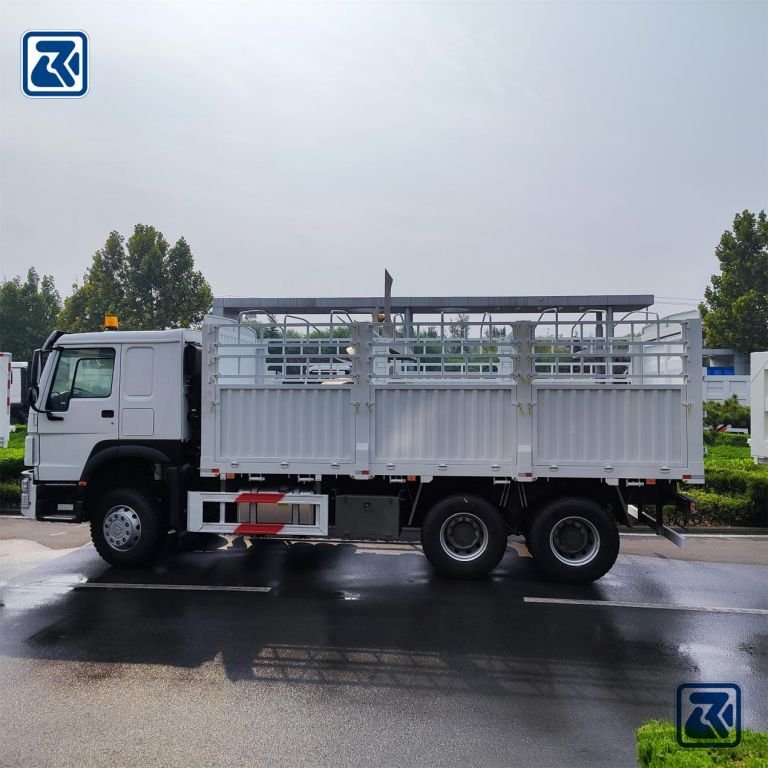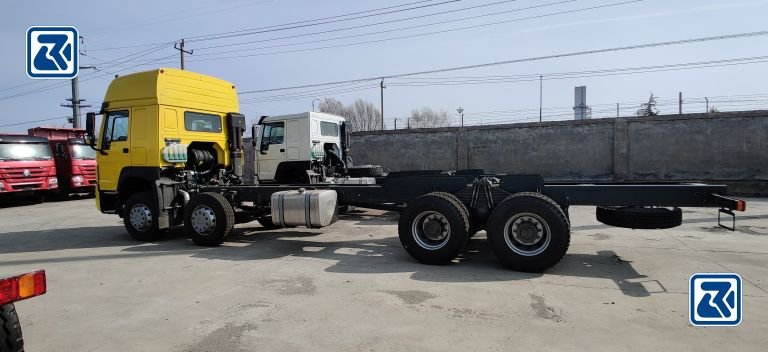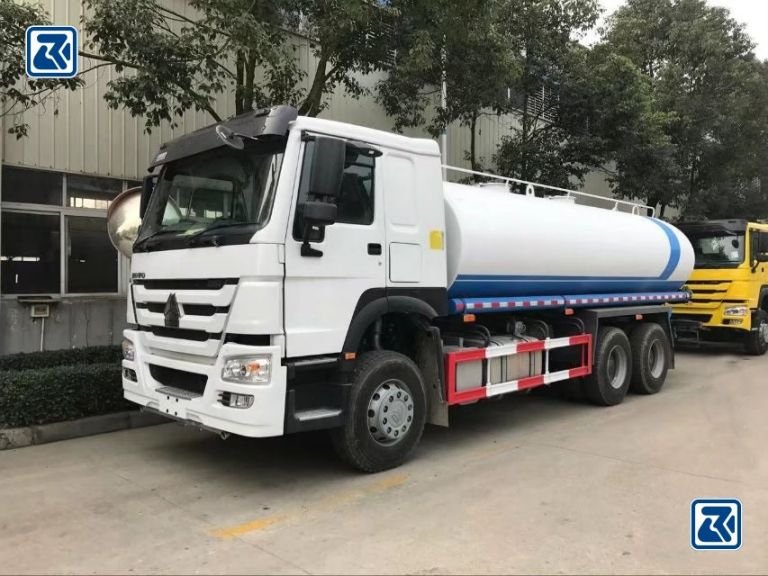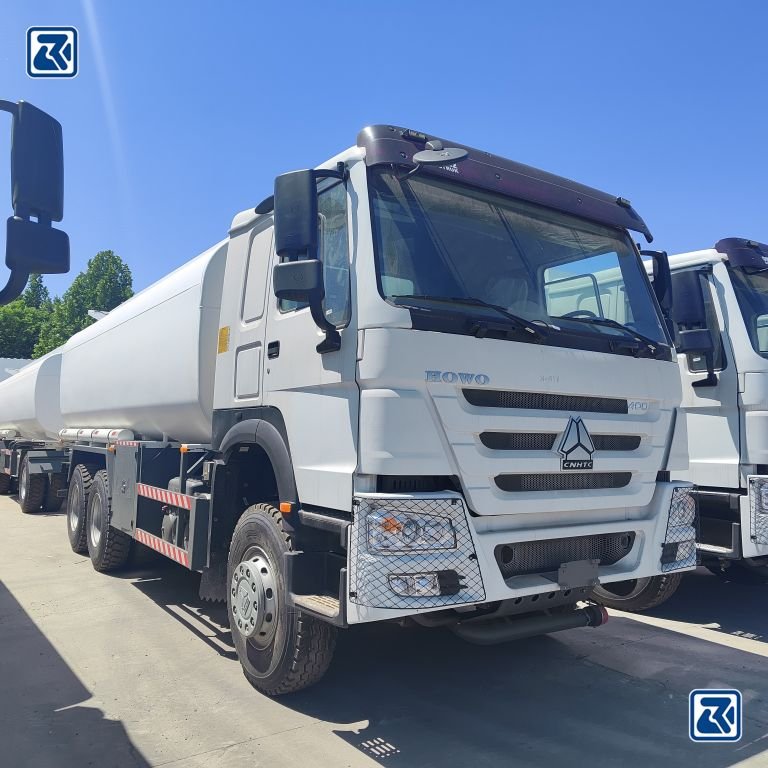HOWO Special Truck Ltd cooperates with China National Heavy Duty Truck Conversion Base. Our company specialises in the research, development, production and sales of all kinds of special vehicles.
The hydraulic system of HOWO cargo trucks requires regular maintenance. This is vital to vehicle performance and safety.
The hydraulic system plays a key role in the operation of the truck. In the event of a failure, it may pose a risk to the driver and others on the road. Therefore, owners and operators should pay attention to the maintenance of the hydraulic system. Regular inspections and maintenance can ensure that the system runs smoothly and safely.
Next, we will detail the steps and considerations for hydraulic system maintenance. Helping owners and operators do a better job of maintenance.
Table of Contents
Composition and function of hydraulic system
The hydraulic system is an important part of the HOWO cargo truck. It is responsible for controlling cargo lifting, steering and braking. Regular maintenance of the hydraulic system is critical to maintain optimum vehicle performance and safety.
Hydraulic system consists of hydraulic pumps, hydraulic cylinders, hydraulic oil and control valves. Hydraulic pump provides power to promote the flow of hydraulic oil. The hydraulic cylinder lifts and lowers the goods through the action of hydraulic oil. As a flowing medium in the system, the hydraulic oil not only transmits power, but also plays the role of lubrication and cooling. Control valves regulate the oil flow according to the operating instructions and ensure the proper functioning of the individual components.
The hydraulic system enables goods to be lifted and lowered safely and efficiently. In addition, it controls key functions such as steering and braking, which depend on the power support provided by the hydraulic system.
The functionality and reliability of the hydraulic system is enhanced by regular maintenance. This ensures not only the proper functioning of the vehicle, but also safety.
Hydraulic systems are an important part of a truck, and regular maintenance is key to ensuring their efficient operation and safe use.
Common Problems and Causes of Hydraulic Systems
Hydraulic systems are used in a wide range of industries, including manufacturing, construction, agriculture and aviation. Despite its excellent performance, common problems can still occur. Listed below are some of the common problems and their causes.
- Oil leakage is one of the most common problems. Often, hydraulic fluid leaks due to loose, worn or damaged pipes or fittings. This can reduce the pressure and efficiency of the system, leading to performance issues.
- Hydraulic pump failure is also a common occurrence. It is usually caused by wear and tear or equipment failure. When hydraulic fluid flow is insufficient, system operation will be severely affected.
- Hydraulic fluid deterioration is another issue to be aware of. As the time of use increases, the hydraulic oil will deteriorate or become contaminated. This not only reduces the efficiency of the oil, but also affects the reliability of the system.
- Air mixing into the system is also a common problem. When air enters a hydraulic system, it can cause the cylinders to move slowly or even lose power. This can adversely affect the safety and functionality of the system.
To prevent these problems, it’s important to maintain your hydraulic system on a regular basis. Changing the hydraulic fluid and inspecting the pipes and pumps can extend the life of the system. At the same time, ensuring that the system is not overloaded will help maintain its long-term reliability.
Get a tailored quote today and elevate your transport efficiency.
Hydraulic System Maintenance Guide
Maintaining your hydraulic system is critical to keeping it running efficiently and consistently. With regular maintenance, you can prevent breakdowns, reduce maintenance costs, and ensure safe operation. Below are some key maintenance steps:
- Check and replace the hydraulic fluid: The level and quality of the hydraulic fluid should be checked regularly. To ensure proper system operation, keep the hydraulic fluid clean and free of contaminants. Change the hydraulic fluid at the recommended intervals. Use of contaminated hydraulic fluid may result in equipment failure.
- Inspect Hydraulic Lines and Fittings: To prevent system leaks, periodically inspect the condition of lines and fittings. This includes checking for looseness or wear. If there are any problems, tighten or replace them promptly. This is because leaking lines can cause a drop in pressure, which can affect the normal operation of the equipment.
- Maintenance of hydraulic pumps and cylinders: Check the hydraulic pump regularly to make sure it is working properly. By checking the seals for damage, you can avoid any degradation in the performance of the hydraulic system. Maintaining these critical components will help extend the life of the system.
- Remove air: Air can enter the hydraulic system and cause problems such as brake failure and erratic operation. Regularly remove air and make sure there are no air bubbles in the hydraulic fluid. This will prevent erratic operation or failure.
With proper maintenance, equipment failure rates can be greatly reduced, service life extended, and safety ensured. Routine maintenance of the hydraulic system is therefore essential to avoid high equipment downtime costs.
Routine Maintenance Guidelines
Proper maintenance is critical to the long-term performance and service life of your hydraulic system. The following are routine maintenance recommendations that every operator should follow:
- Periodic Inspection: Before starting work, the operator should inspect the hydraulic system. This includes checking the hydraulic fluid level, piping connections, and cylinder condition. Regular inspections reduce the likelihood of breakdowns and avoid costly repairs.
- Keep it clean: It is important to keep your hydraulic system clean. A clean system prevents dirt and contaminants from entering, thus avoiding contamination and wear and tear. A clean system also makes it easier to detect leaks.
- Lubricate properly: Regularly lubricate the hydraulic pump and related components. Lubrication prevents system wear and ensures smooth, efficient operation. Adequate lubrication also reduces friction between hydraulic components and extends service life.
Following these routine maintenance recommendations will extend the life of your hydraulic system. It also improves daily work efficiency. They also reduce repair costs and downtime. Routine maintenance is therefore a very worthwhile investment.
Conclusion
HOWO Special Truck Ltd understands the importance of hydraulics for your truck. We don’t just sell you a vehicle, we also provide you with long-term support. Ensuring that your trucks run stably and efficiently in all conditions.
We believe that proper maintenance is the key to safety and performance. With regular inspections and expert service, you can fix problems early. This will help you avoid unplanned downtime and costly repairs due to equipment failure. In addition, good maintenance will make your trucks last longer, work better and help you get the most value for your money.
FAQ
The frequency of hydraulic system checks can vary depending on the usage and operating conditions of the truck. It is recommended to schedule a maintenance check at least once a year or every 10,000 miles.
Some signs of potential hydraulic system problems include leakage, decreased performance, overheating, abnormal noises, and slow cylinder movement. Regular inspection and maintenance can also help identify potential issues.
Hydraulic oil should be replaced when it becomes contaminated, oxidized, or dirty. It is also recommended to replace the oil at regular intervals, as specified by the manufacturer, to maintain the effectiveness and efficiency of the system.




